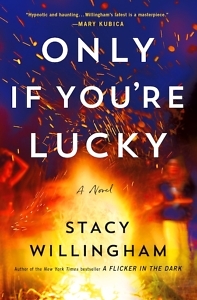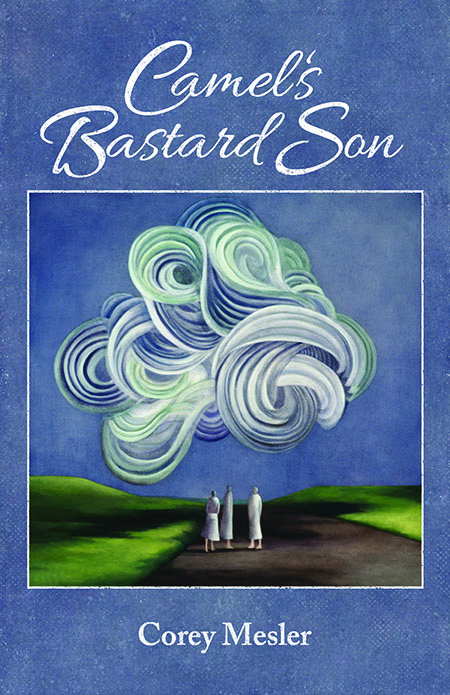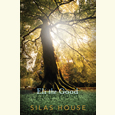Dangerous Bonds
Stacy Willingham delivers a complex mystery driven by female friendship
In her new thriller, Only if You’re Lucky, Stacy Willingham slowly unravels a knotted, twisted tale of loss, revenge, and manipulation. Narrated by Margot, the story is told in a series of achronological flashbacks, intercut with glimpses of a present-day police investigation. The structure heightens the sense that all of the events are unfolding during a fever dream or alcohol-induced bender; each chapter is cryptically labeled “Before” or “After.”
 As children growing up in a North Carolina beach town, Margot and Eliza had been inseparable. Their friendship, to Margot, was intoxicating, all-consuming. “Being loved by Eliza was like a sudden hit of adrenaline,” Margot says. “A gateway drug, something addicting and freeing that left you craving your next hit the second she stepped away.” Where Margot hung back, Eliza bounded forward, always bringing Margot along with her. Until, in their senior year of high school, Eliza began leaving Margot behind.
As children growing up in a North Carolina beach town, Margot and Eliza had been inseparable. Their friendship, to Margot, was intoxicating, all-consuming. “Being loved by Eliza was like a sudden hit of adrenaline,” Margot says. “A gateway drug, something addicting and freeing that left you craving your next hit the second she stepped away.” Where Margot hung back, Eliza bounded forward, always bringing Margot along with her. Until, in their senior year of high school, Eliza began leaving Margot behind.
Before the two could reconcile the rift growing between them, Eliza died in a drunken accident at a late-night beach bacchanal. The details of her death are revealed at a painstaking rate throughout the novel, not becoming fully clear until its final pages, yet Margot’s unspoken knowledge and suppressed memories make her an unreliable source of these revelations.
After losing Eliza, Margot is convinced she will never experience that kind of euphoric friendship again, and she spends her freshman year of college holed up in the dorm room they were supposed to share. Then she meets Lucy. “If Eliza was adrenaline, that makes Lucy something even more,” Margot says. “Something more addicting, more dangerous. Something that I probably shouldn’t be dabbling in, but at the same time something impossible to refuse.”
The book opens with Margot, Lucy, and Lucy’s sidekicks Nicole and Sloane playing Truth or Dare — only in this version of the game, each player must spin a knife, an ominous tradition that bookends important moments throughout the story. Margot describes the scene almost sensually as Lucy takes her turn. “She leans over and grabs the knife, her fingers curling around the handle, one by one,” Margot says, “as naturally as grabbing the base of a curling iron, a bottle of beer. The same way her hand grips my wrist when she finds me in a crowded room, pulling me away and into the night.”
Then the narrative jumps forward in time: Margot and the two other girls are being questioned by a detective. Lucy is missing, and someone named Levi has been murdered.
 With each chapter, more and more of the story’s holes are filled in. We learn about the months leading up to Eliza’s death, Margot’s lonely first semesters of college, and the way everything changed when Lucy suddenly selected Margot to join her tight-knit friend group. But the more information the book delivers, the clearer it becomes that much is missing. While Margot may have moved from North to South Carolina with hopes of turning over a new leaf, her past seems to be following close behind.
With each chapter, more and more of the story’s holes are filled in. We learn about the months leading up to Eliza’s death, Margot’s lonely first semesters of college, and the way everything changed when Lucy suddenly selected Margot to join her tight-knit friend group. But the more information the book delivers, the clearer it becomes that much is missing. While Margot may have moved from North to South Carolina with hopes of turning over a new leaf, her past seems to be following close behind.
Soon, Margot begins to grow suspicious that Lucy initiated their friendship for a reason. Margot tells Sloane she is worried she doesn’t fit in with the others because of her timidity. Sloane responds, “That’s what Lucy looks for. You can turn vanilla into anything, right? It’s a blank slate. It’s malleable.”
The novel’s themes also morph as more truths are revealed. At first, the narrative seems to revolve around how peer pressure can warp one’s sense of morality, with Lucy serving as the puppet master. During another game of Truth or Dare, Lucy asks Levi, “If you knew you could get away with murder, would you do it? ” The question triggers an ethical reckoning within Margot, “the concept of being mutually good and evil, dark and light, tickling my subconscious like an incessant itch growing stronger, harder to ignore.”
But when Margot finally discovers the secrets that connect Before and After, she understands what drove Lucy’s disavowal of society’s version of right and wrong: It was her own form of vigilante justice, an attempt at rectifying structural power imbalances. What was once mysterious, even alluring, about Lucy becomes context for her actions and her pain. And for others’ readiness to blame her for their own crimes.
Ultimately, Only If You’re Lucky is a story about everything but friendship. Instead, it is about lust, idolization, fear, and power: who has it, who doesn’t, and the lengths people will go to regain their own.

Bianca Sass, a Nashville native, is a writer, director, and scholar whose work probes the intersection of the personal and the political. She’s a recent graduate of Amherst College, where she majored in English and law, jurisprudence, and social thought, as well as wrote and directed many theatrical productions. In 2023, Bianca workshopped her new play, Babydoll, at the Looby Theater in Nashville. She’s currently a teaching assistant at the Mary Lyon Upper School in Boston.


